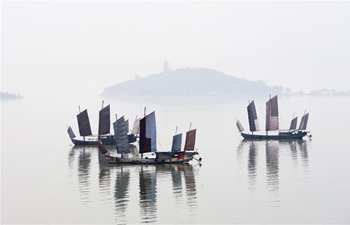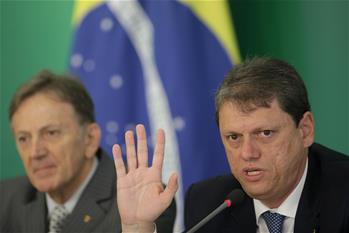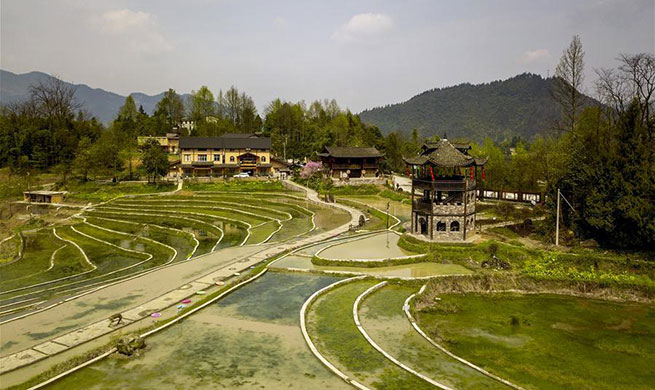NAIROBI, April 17 (Xinhua) -- Health ministers from Africa's Great Lakes Region on Wednesday vowed to revitalize efforts to eradicate HIV/Aids that affects an estimated 4.3 percent of the population.
The health ministers from six Great Lakes countries including Kenya, Uganda, Tanzania, Rwanda, Burundi and Democratic Republic of Congo (DRC) said they will ramp up funding towards HIV/Aids prevention and case management.
"Members countries from the Great Lakes Region will intensify cooperation on HIV/Aids response in addition to addressing major drivers of the pandemic," Sicily Kariuki, Kenya's cabinet secretary for health told journalists in Nairobi.
Kenya hosted the 15th ordinary session of the Great Lakes Initiative on Aids (GLIA) council of ministers to review progress in the fight against the epidemic that remains a public health challenge in the east and central African regions.
Health ministers, experts and campaigners who attended the two day high-level forum agreed that innovative financing combined with robust public awareness is key to winning the war against HIV and Aids in the Great Lakes Region.
"There is need for our governments to partner with private sector and foundations to bridge financing towards HIV prevention and treatment for the infected given the economic toll the disease is taking on our countries," said Kariuki.
She said that targeted interventions like economic empowerment of vulnerable groups, health insurance and subsidized cost of anti-retroviral drugs is key to minimizing deaths linked to HIV and Aids.
Kenya has rallied behind regional initiatives aimed at hastening progress towards achieving Aids-free status by 2030.
Nduku Kilonzo, executive director of National Aids Control Council said that regional cooperation on bio-medical research, training and public education is key to reducing the Aids burden that affects productive segment of the population.
"Countries in the Great Lakes Region vary in the overall HIV burden but can share best practices that are required to prolong the lives of infected population," said Nduku.
She said that poverty, conflicts, forced migration and broken health systems have fueled HIV infections and deaths in the Great Lakes Region.













